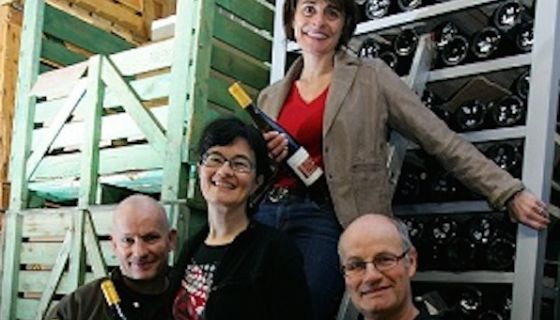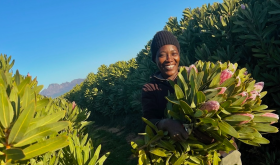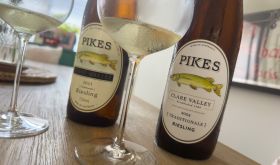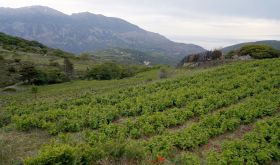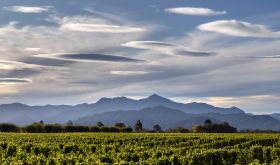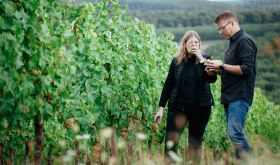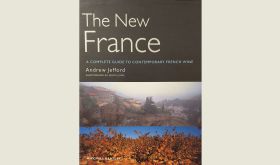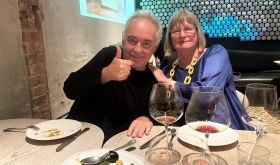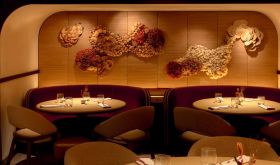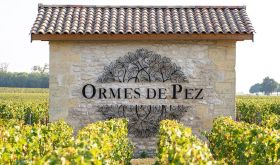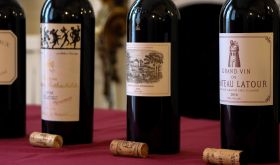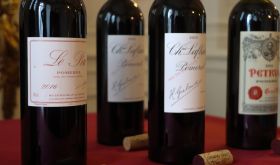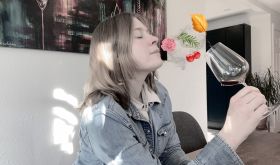From €12.50, £17, CA$30.75, $24.99, 27.90 Swiss francs, AU$39.99, 135 Brazilian reais
During my tasting of Alsace Rieslings at Millésime Alsace in Colmar last month, resulting in this collection of 113 (mainly very enthusiastic) tasting notes, there was one wine that really stood out.
I tasted and was impressed by Albert Mann’s 2014 Rieslings from the grands crus of Schlossberg and Furstentum, which I’m sure will develop magnificence, but Albert Mann, Cuvée Albert Riesling 2014 Alsace, a blend of fruit from 40-year-old vines on marly limestone mainly from Rosenberg in Wettolsheim and Altenbourg in Kientzheim (which also yielded a Riesling Vendange Tardive in 2014) was already stunning.
It has the very mildly funky nose that goes with the purest of winemaking practices (no added yeast or enzymes) with a great spring-like buzz of the floral aspects of Riesling on the nose, and then the most amazing energy and tension. The finish is bone dry and the impact of the wine, that tasted like a cocktail of all sorts of actions and reactions, just goes on and on.
That tension may be partly due to the suppression of malolactic conversion, and prolonged contact with fine lees in a wine from biodynamically farmed vineyards. At Albert Mann there has been no fining since 1995 and screwcaps have been used since 2004.
On the section of their rich website devoted to screwcaps they suggest that they use screwcaps simply to preserve the youthful fruitiness of their wines and that their screwcapped wines should be drunk within four to six years. I’m not sure all screwcapped wines need to be drunk this young but suggest this one will be in its prime from 2016 until 2023. (For what it’s worth, I gave this wine a score of 17 out of 20.)
Albert Mann is run by the particularly tall brothers Maurice and Jacky Barthelmé, voted Vignerons de l’Année by La Revue du Vin de France in 2012, and their respective wives Marie-Claire and Marie-Thérèse. Marie-Claire was Albert Mann’s daughter. Via their mother, a member of the Blanck family of Kaysersberg, the Barthelmé brothers added Schlossberg, Furstentum and Altenbourg to the Mann holdings around Wettolsheim.
They have been certified organic since 2006 and started the biodynamic certification process in 2010 for their 22 hectares (54 acres) of vines, by far the majority in grands crus with some lieux-dits. According to Monty Waldin, biodynamic enthusiast, Nick Mills of Rippon in Central Otago claims to have learnt much of what he knows about viticulture when he did a stage at Albert Mann, and particularly appreciated their expression sélection vassale for massal selection from old vines.
The 2014 growing season in Alsace, as elsewhere in France, got off to an early start but an unusually wet summer applied the brakes. Drosophila suzukii severely prejudiced the quality of Pinot varieties and Gewurztraminer but the Rieslings were an exception and many fine Rieslings were made, as this wine proves. Yields were relatively low and there is no shortage of flavour and concentration.
According to wine-searcher.com, this well-distributed wine is available (in ascending order of price) in Italy, Austria, France, Quebec, US, Spain, Switzerland, Australia and Brazil. The UK importer is natural-wine specialist Les Caves de Pyrène. Peter Weygandt is the US importer. But the Albert Mann website is keen that no one should be deprived of their wines and has a particularly detailed guide to importers.

